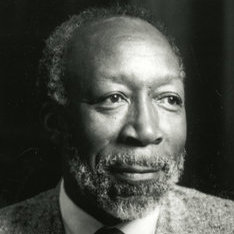 John Williams, longtime university educator and noted novelist, died on July 3 at a veteran’s home in Paramus, New Jersey. He was 89 years old.
John Williams, longtime university educator and noted novelist, died on July 3 at a veteran’s home in Paramus, New Jersey. He was 89 years old.
Williams was perhaps best known for his 1967 novel The Man Who Cried I Am. He was also the author of The King God Didn’t Save: Reflections on the Life and Death of Martin Luther King Jr. (Coward-McCann, 1970). This controversial book, written only two years after King’s assassination, claimed that the civil rights leader was somewhat of a puppet of the White power structure.
Williams was a native of Jackson, Mississippi. After serving in the medical corps in the Pacific during World War II, he enrolled at Syracuse University in New York and earned a bachelor’s degree in English. He moved to New York and worked for Ebony, Jet, and Newsweek magazines before publishing his first novel.
Williams taught at Rutgers University from 1979 until his retirement in 1994.

